Metropolitan Hilarion: Let us remember that the Lord Jesus Christ had suffered for every single one of us.
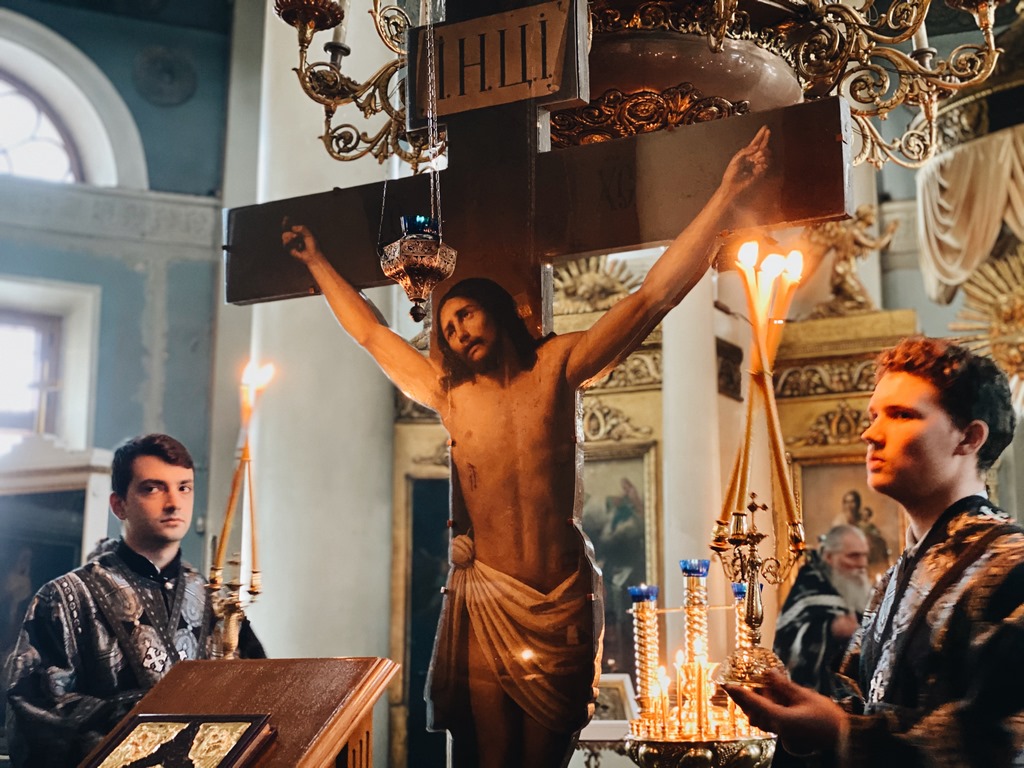
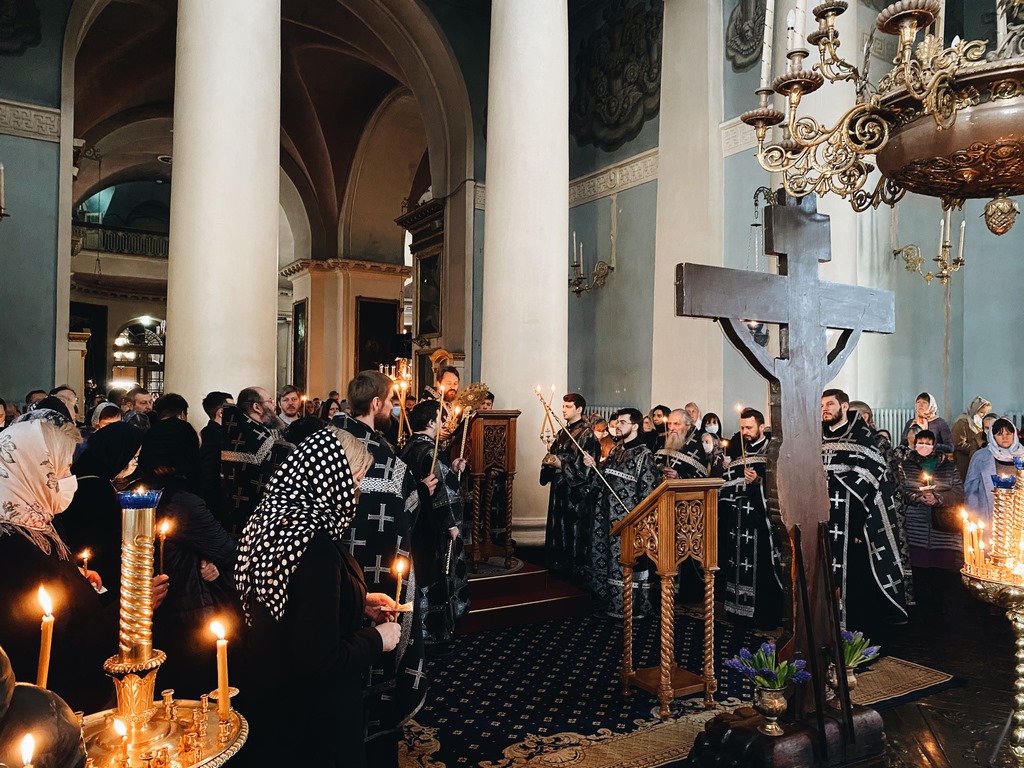
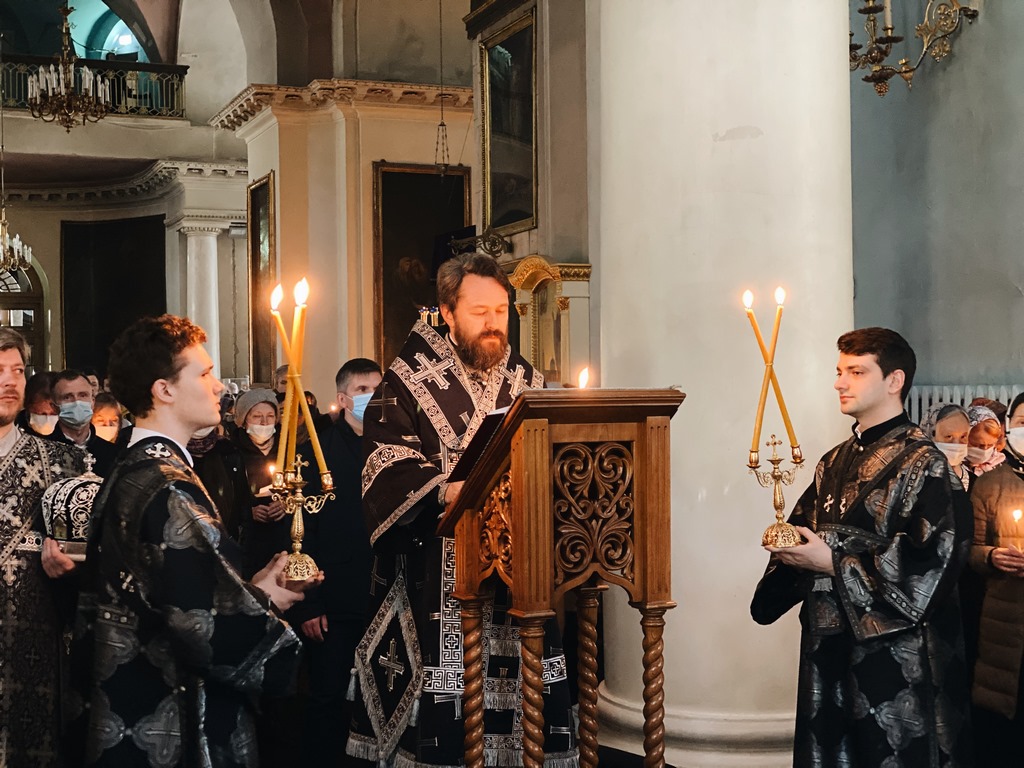
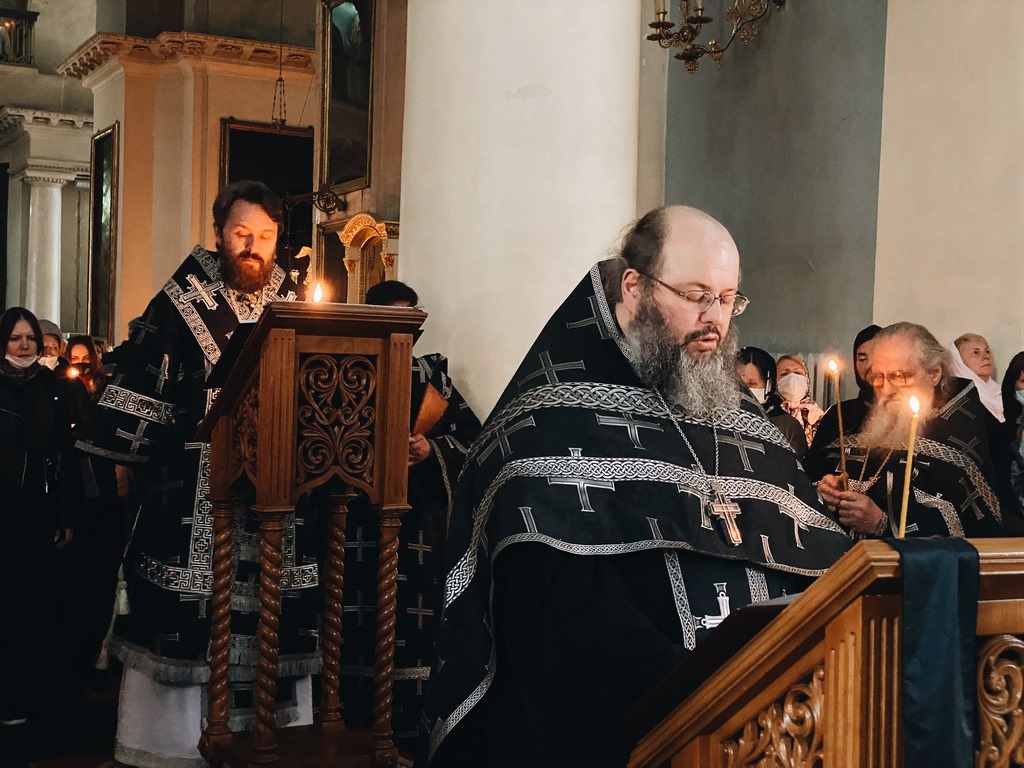
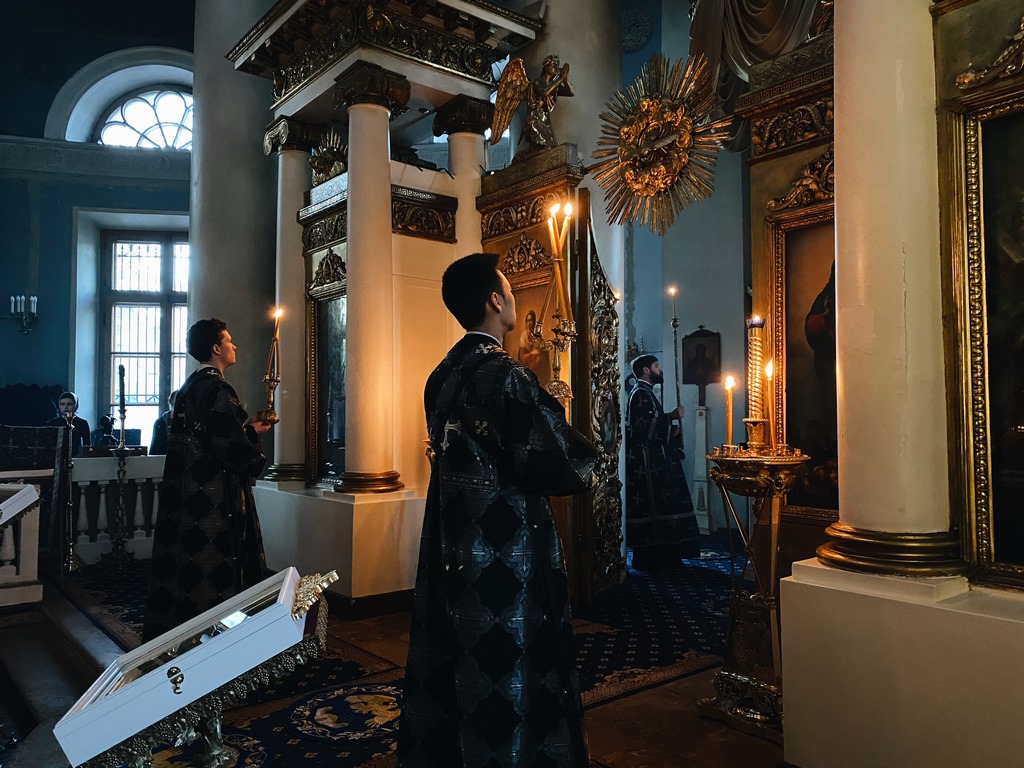
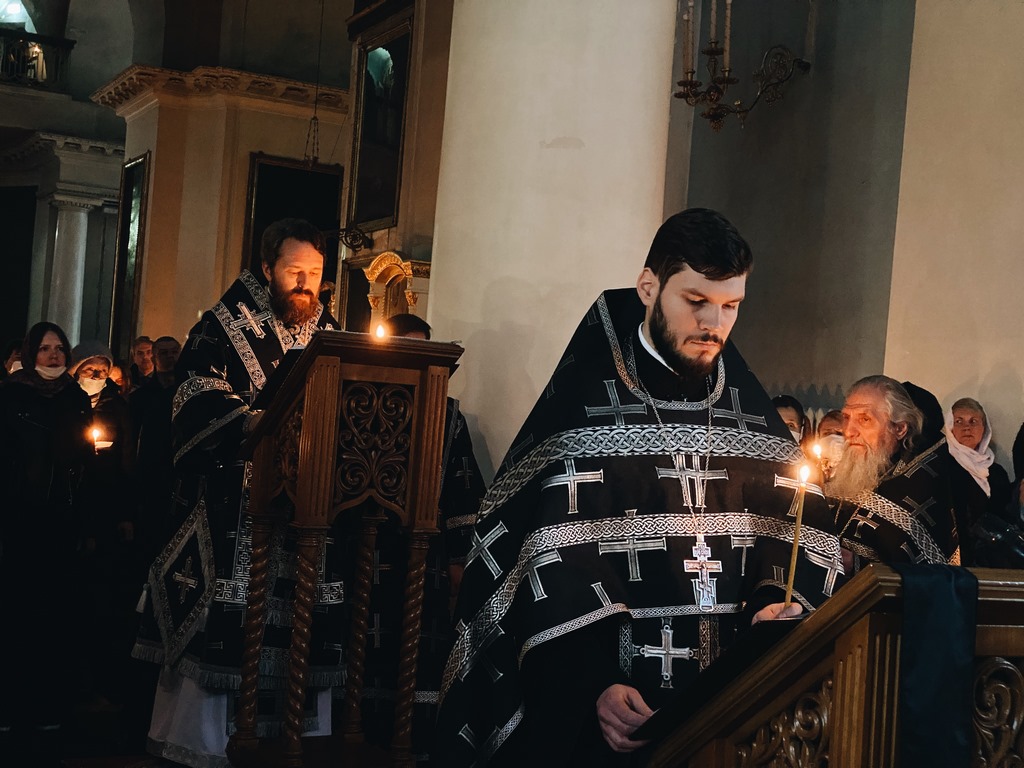
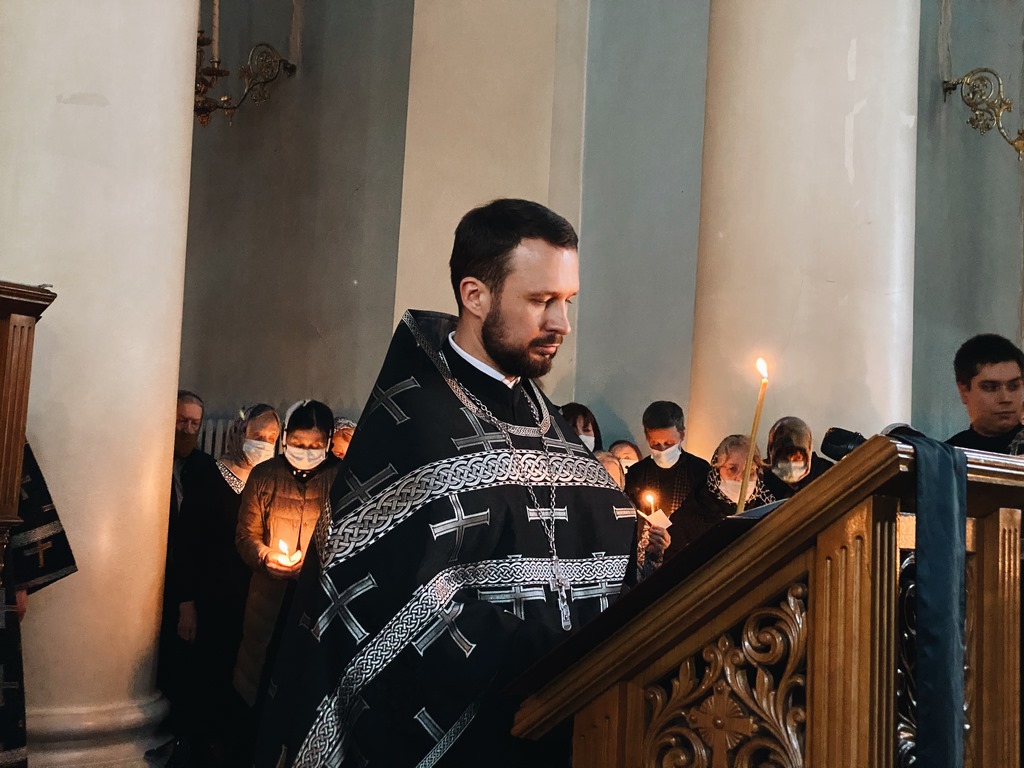
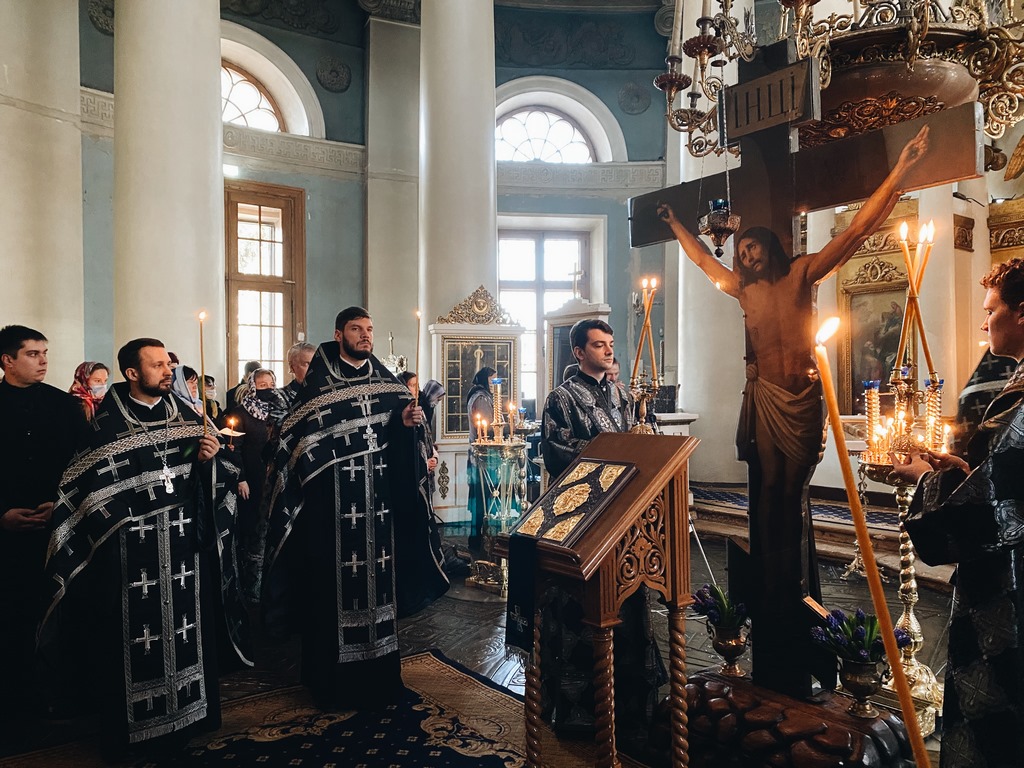
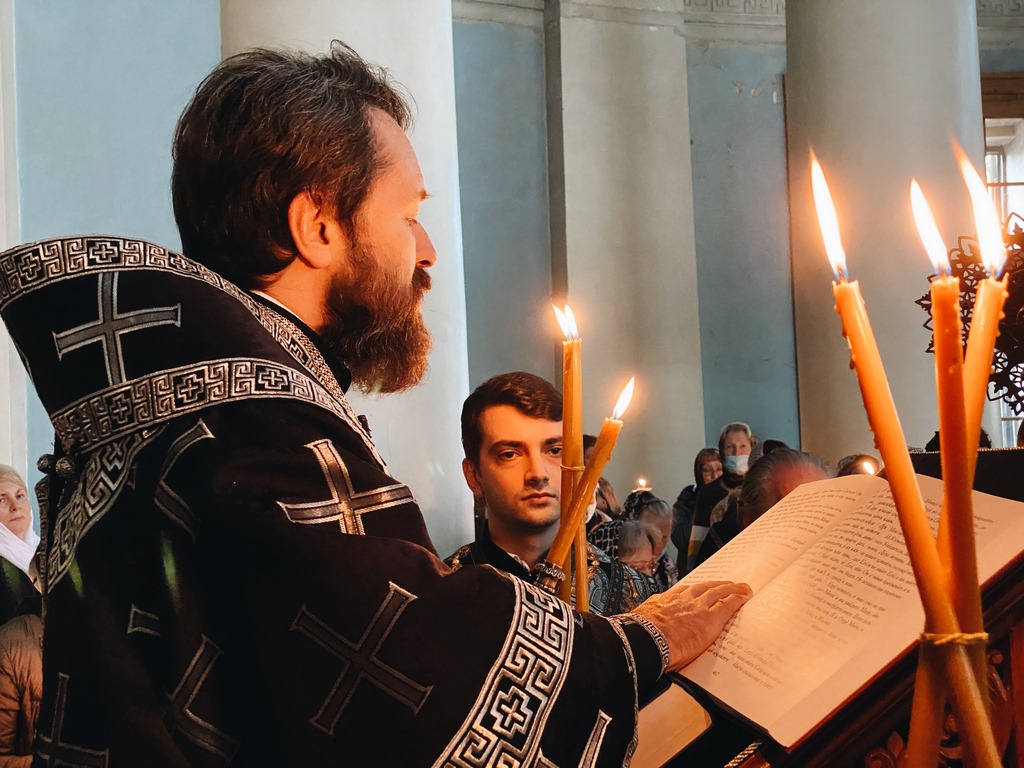
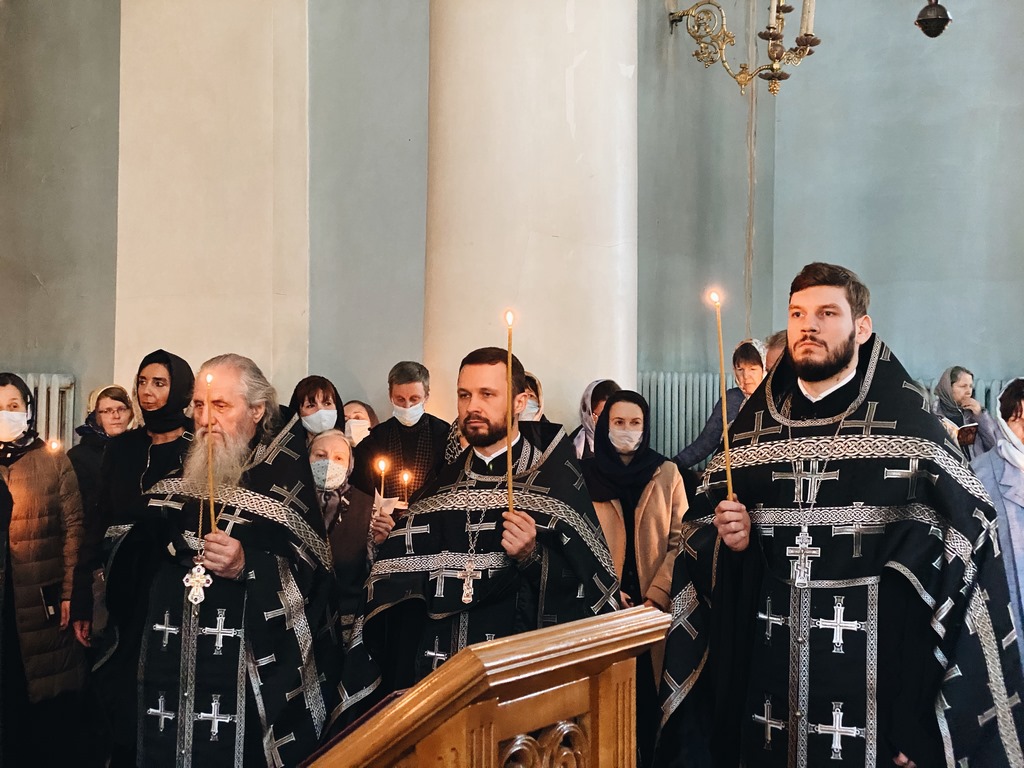
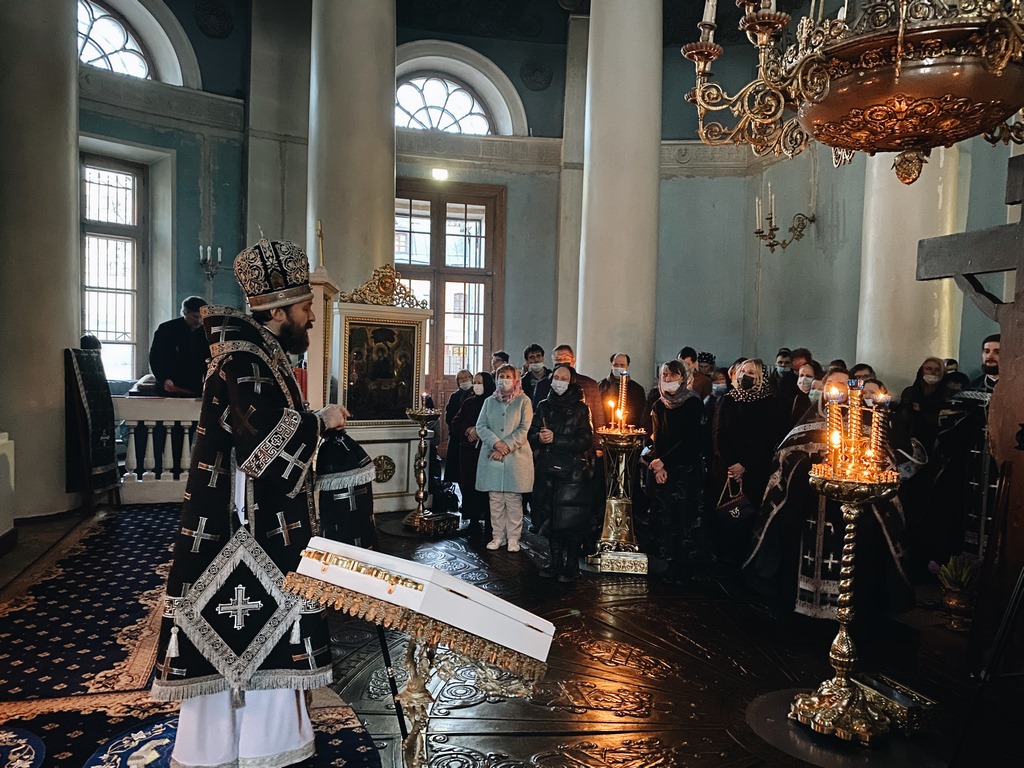
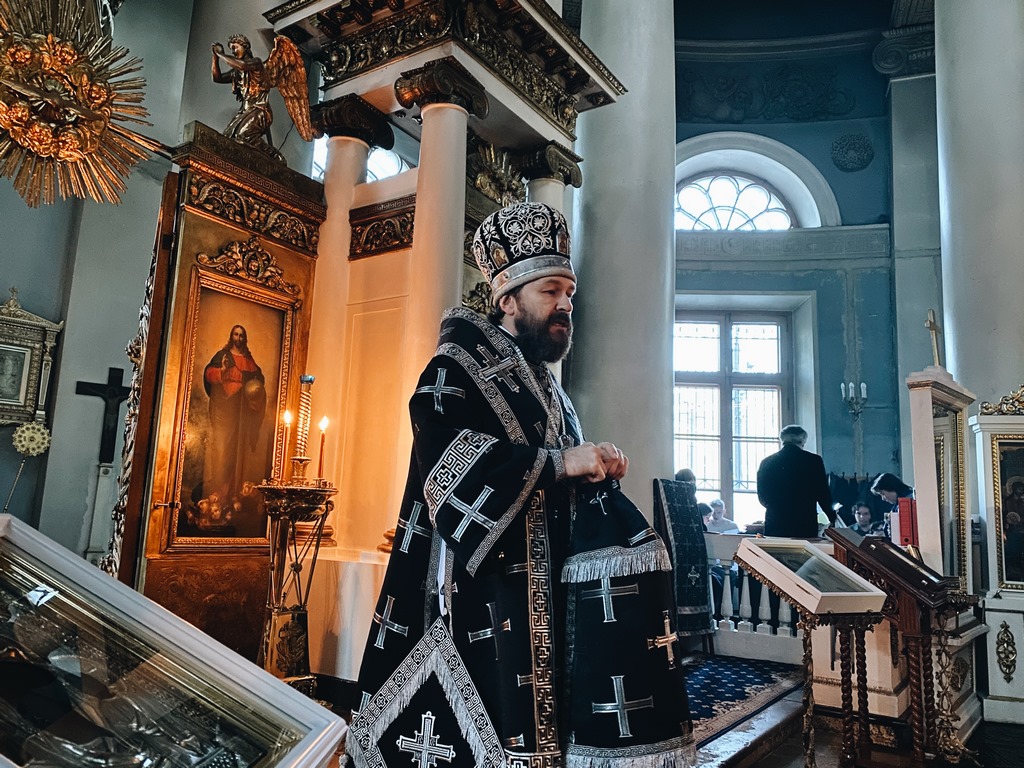

On April 29th, 2021, the Great Thursday, Metropolitan Hilarion of Volokolamsk, Chairman of the Moscow Patriarchate’s Department for External Church Relations, celebrated matins with the reading of the Twelve Gospels at the Moscow church of “Joy to All the Afflicted” icon of the Mother of God on Bolshaya Ordynka street. Clergymen of the church assisted the archpastor.
After the service, His Eminence Hilarion addressed the congregation with an archpastoral homily, saying:
“In the name of the Father and the Son and the Holy Spirit!
We have heard twelve passages from the four canonical Gospels, telling us about the last hours and minutes of the earthly life of our Lord and Savior Jesus Christ.
The Lord talked with His disciples at the Last Supper. This conversation was preserved for us by the holy apostle and evangelist John. “By this all will know that you are My disciples, if you have love for one another.” (John 13:35), - said Christ to the apostles. “I go to My Father” (John 14:12), - says the Son of God to His disciples, but they do not understand what it is about. The disciples are trying to ask the Savior, but He does not answer their questions, but says that “the Comforter, the Holy Spirit, whom the Father will send in My name, He will teach you all things, and bring to your remembrance all things that I said to you.” (John 14:26 ).
Later on, the Gospel readings tell how the Lord Jesus Christ lifted up a prayer for His disciples and for all believers in His name according to their word, so that they would be preserved in a spiritual indissoluble unity in which the Father and the Son abide. As the disciples, having chanted, went to the Mount of Olives, the Lord Jesus Christ prayed in the Garden of Gethsemane: “O My Father, if it is possible, let this cup pass from Me; nevertheless, not as I will, but as You will.”(Matthew 26. 39).
Then the whole Gospel story of the suffering and death of our Lord Jesus Christ is revealed before us. We hear about how He was arrested, taken into custody, how Peter denied Him, and how Jesus appeared before the judgment of the chief priests, and then before the Roman governor Pontius Pilate.
The whole story of the Passion of Christ tells us, first of all, about the endless, boundless, ineffable and incomprehensible love of God for the human race. Out of love, God the Father sent His Son into the world to suffer and die on the cross. The Lord Jesus Christ accepted this suffering on the Cross - by obedience to His Father and by love for the human race.
The Son of God manifested His love for people both during his whole life and in its last hour. When they condemned Him, when they testified against Him, He did not answer, for he did not seek human righteousness, but the truth of God.
Christ did nothing to be justified at the judgment. He did not stop Judas, who decided to betray Him, although he admonished him, making it clear that He knew his intentions. He did not prevent the chief priests, scribes and Jewish elders from taking him into custody. He did nothing to justify himself at the trial of the Sanhedrin. When false witnesses confronted Him, He was silent. Christ did nothing to avoid the death sentence at Pilate's trial, although He did answer the questions of the Roman governor, not in order to save His own life, but in order to save Pilate’s soul.
Jesus Christ knew that He was sent into this world to die and redeem the human race from sin, but He was not only the Incarnate God, but also a man who is characterized by all human experiences and suffering. He was not a superman who does not experience suffering or pain - the Divine nature, which united in Him with human nature, did not make His human suffering less painful than the suffering of any other person.
The Son of God endured everything that a person can endure: the betrayal of loved ones, betrayal and condemnation on the part of His people, about whom He said: “I was sent only to the lost sheep of the house of Israel” (Matt. 15:24). But the lost sheep of the house of Israel did not feel so at all. On the contrary, they believed that they were the arbiters of destinies, and He was an alien person who came to violate their traditions and customs.
Christ also endured loneliness, because, as we hear from the Gospels, the disciples left Him at the moment when He was arrested and put on trial by the high priests and the Roman governor. During all the time of His ministry, He was surrounded by disciples and admirers, and before the judgment of human malice and unrighteousness, He remained alone.
The Savior endured the betrayal of His closest disciple, who, as Christ predicted to him, denied Him. But Peter did not deny because he had to fulfill the prediction. The Lord predicted betrayal for him, for He knew the weakness of his character, his human weakness, that he would not withstand this test.
The Lord Jesus Christ endured severe physical torture. Little is said about it in the Gospels, for those who read the Gospels knew what it meant to be scourged, to be crucified on the cross, what sort of inhuman torments the one who was subjected to those severe sufferings had to experience. When the Roman soldiers nailed Jesus to the cross, not a word of condemnation or indignation or pain escaped from His lips. He prayed that the Lord would forgive those who crucified Him - all those who were guilty of His death.
This was the death of the Righteous One and the God-Man. God endured human death in order to show by His example how we should endure those small sufferings that fall to our lot, and bear that cross, the weight of which is incomparable with the weight of His cross. So that we, looking at the example of our Lord and Savior, try to at least imitate Him in this.
But, above all, the suffering of Jesus Christ on the cross was necessary to atone for our sins, in order to open the way to the Kingdom of Heaven and to give eternal life to us, His followers and disciples, whom He chose so that we would become members of His Church - His Body.
Whenever we read this sacred story, let us remember that the Lord Jesus Christ had suffered for each of us. He suffered for all of humanity, for all who are willing to accept His sacrifice for them. And each of us is involved in this sacrifice.
I am not saying that we are all guilty of this death, as some preachers often claim. Because the feeling of guilt for the death of the Lord Jesus Christ will not generate in our hearts gratitude and love for Him. We are not to blame for what happened two thousand years ago, but we are to blame for what is happening now - with us and around us. Whenever we violate the commandments of God, we do not live according to the law of the Gospel that Christ left us, we do not fulfill His commandments, we become the culprits in His death and accomplices in what the high priests, scribes and Jewish elders did two thousand years ago.
On this day, when we remember the sufferings of the Cross and the death of the God-man Jesus Christ, let us venerate His True Cross and ask the Savior to help us be His disciples, help us fulfill His commandments, help to abide in His love and in that unity with Him, in which He dwells with His Father.
Let us ask the Lord that, having walked with Him on the mournful way of the cross, we would celebrate the feast of Holy Pascha in the joy of His Resurrection. Amen".
DECR Communication Service
